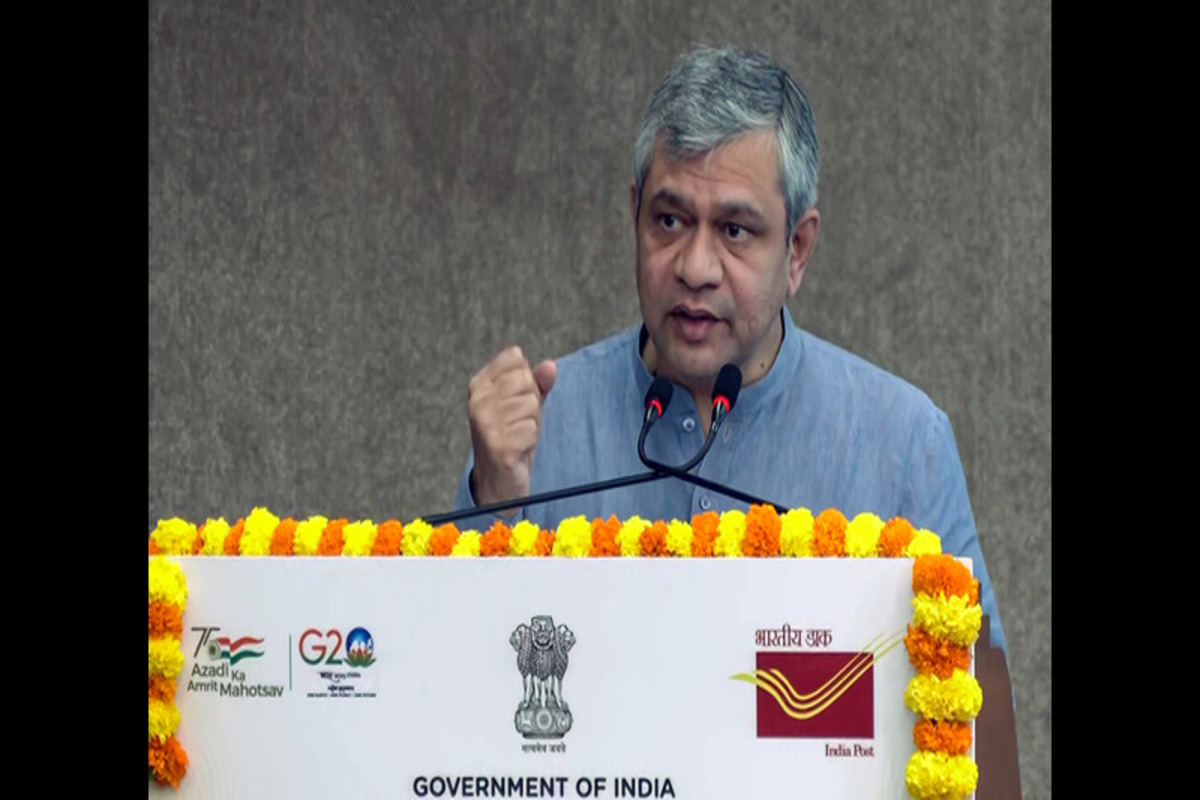While addressing a G20 Digital Economy Minister’s meeting here in Bengaluru, Union Minister for Railways, Communications, Electronics & Information Technology Ashwini Vaishnaw said that the Centre was focusing on controlling the cyber fraud activities.
“Now there is a control on the cyber fraud activities…Three days back we launched two more reforms by which every dealer will be verified…Our focus is on strongly making sure that cyber frauds and other fraudulent activities which go on are controlled…” he said.
Advertisement
“This is very good proof of Prime ministers Narendra Modi’s vision which he started with digital India and that has democratised technology so that technology is available not only to cities but to the people of the far-flung areas, to the people who are in the low-income group. They should also get the benefits of the technology,” the minister said while speaking to ANI.
Ashwini Vaishnaw, on Saturday, highlighted the three priority areas selected by the Indian presidency for the Digital Economy Working Group.
Addressing the G20 Digital Economy Ministers’ Meeting, here Vaishnaw said that the three priority areas selected by the Indian presidency for the Digital Economy Working Group are – Digital Public Infrastructure (DPI), Security in Digital Economy and Digital Scaling.
The Union minister said that these three reflect the priorities of Prime Minister Narendra Modi.
These priorities align with the broader global agenda of fostering a digital economy that is secure, inclusive, and equitable for all, he said.
“PM Modi believes in the democratization of technology,” Vaishnaw said.
The Union minister also highlighted Bengaluru’s position as a hub for innovation, housing some of the world’s most pioneering companies in the tech sector.
“We have assembled to deliberate on issues that will define the growth of the digital economy. Bengaluru is home to some of the most innovative companies in the world,” he said.
The G20 Digital Economy Ministers’ Meeting offers a unique platform for nations to collaborate and share insights on these pressing issues.
As the discussions at the meeting unfold, it is expected that innovative solutions and collaborative strategies will emerge, shaping the trajectory of the global digital economy and contributing to Prime Minister Modi’s vision of a technology-driven future that benefits all of humanity.
PM Modi addressed the G20 Digital Economy Ministers’ Meet via video message today.
He credited the launch of the Digital India initiative in 2015 for the unprecedented digital transformation that has taken place in India over the last 9 years.
The PM underlined that India’s digital transformation is powered by its unshakeable belief in innovation and its commitment to speedy implementation while also being motivated by the spirit of inclusion where no one is left behind.
He said that 850 million internet users in the country enjoy some of the cheapest data costs in the world, highlighting the scale, speed and scope of India’s digital transformation.
He mentioned the JAM trinity- Jan Dhan bank accounts, Aadhaar, and Mobile that have revolutionized financial inclusion and the UPI payment system where nearly 10 billion transactions take place every month, and that 45 per cent of the global real-time payments takes place in India.
The prime minister also threw light on the Direct Benefits Transfer plugging leakages in the system. “Fully digitized taxation systems are promoting transparency and e-governance”, PM Modi said.
The Prime Minister expressed satisfaction that the working group is creating a G20 virtual Global Digital Public Infrastructure Repository and underlined that progress on Common Framework for Digital Public Infrastructure will help create a transparent, accountable, and fair digital ecosystem for all.
He also welcomed the efforts to develop a roadmap to facilitate Cross Country Comparison of Digital Skills and setting up a Virtual Centre of Excellence on Digital Skilling. He said that these are important efforts to meet the needs of a future-ready workforce.
Noting that the digital economy will face security threats and challenges as it spreads globally, the Prime Minister pointed out that it is important to build consensus on the G20 High-Level Principles for a Secure, Trusted, and Resilient Digital Economy.
The Prime Minister further highlighted the Government e-Marketplace, an online public procurement platform that has brought transparency and probity into the process, and the Open Network for Digital Commerce which is democratizing e-Commerce.











